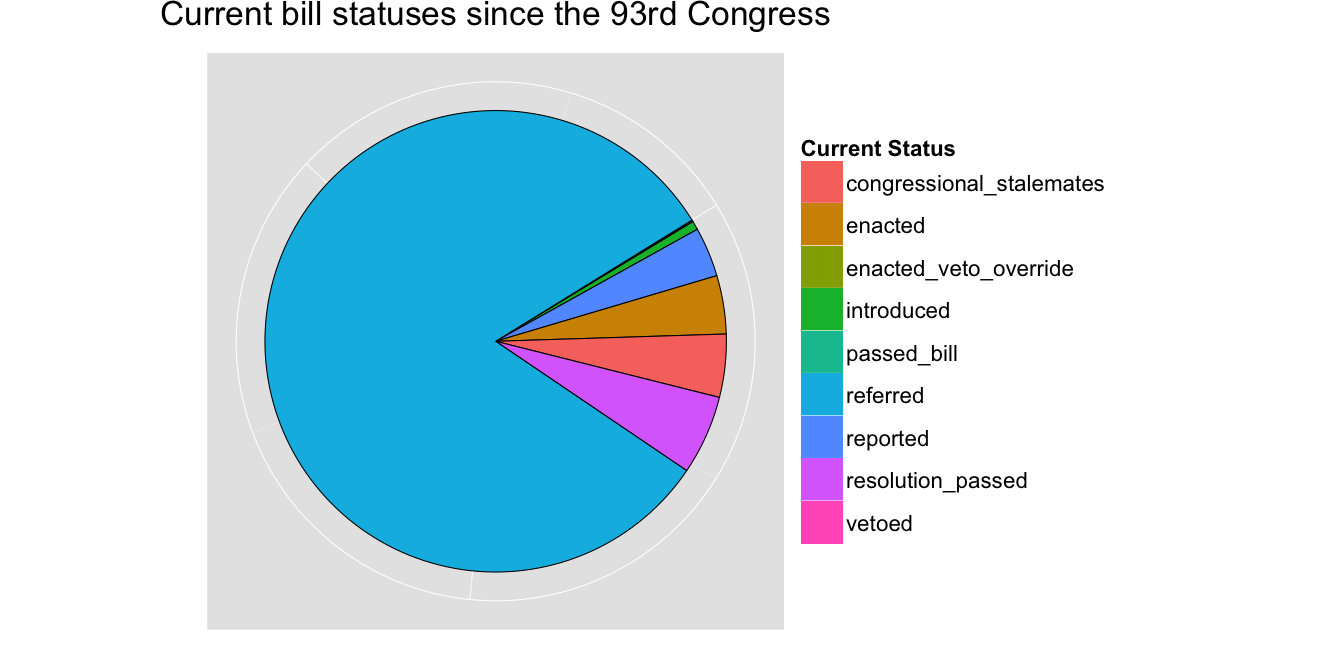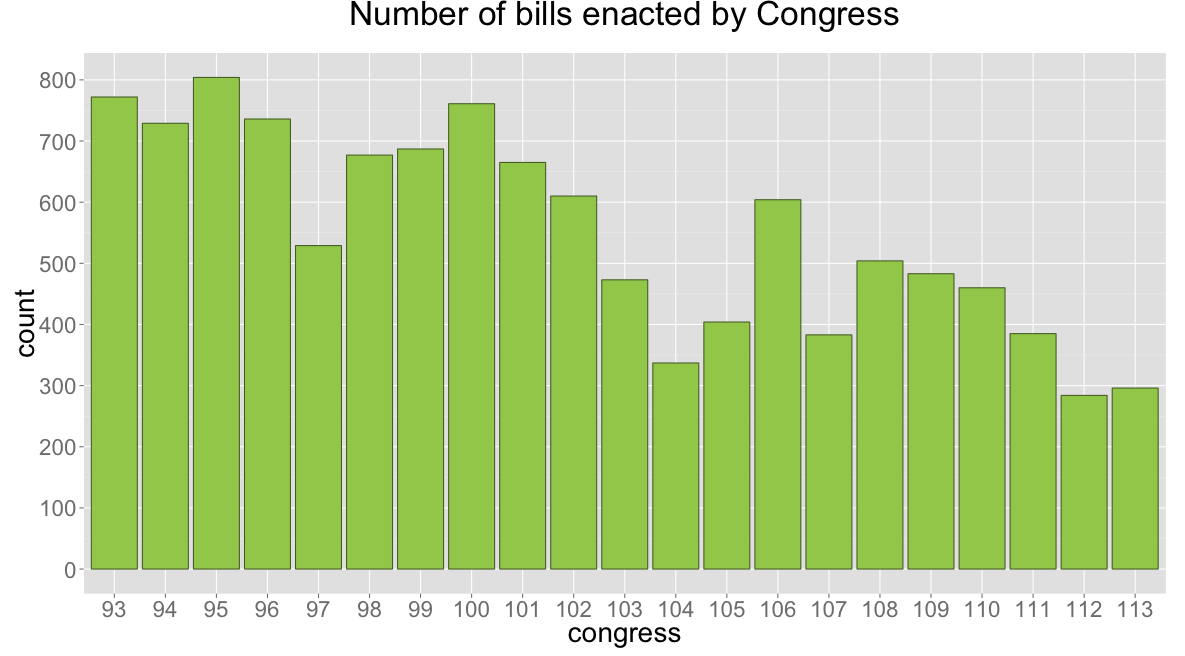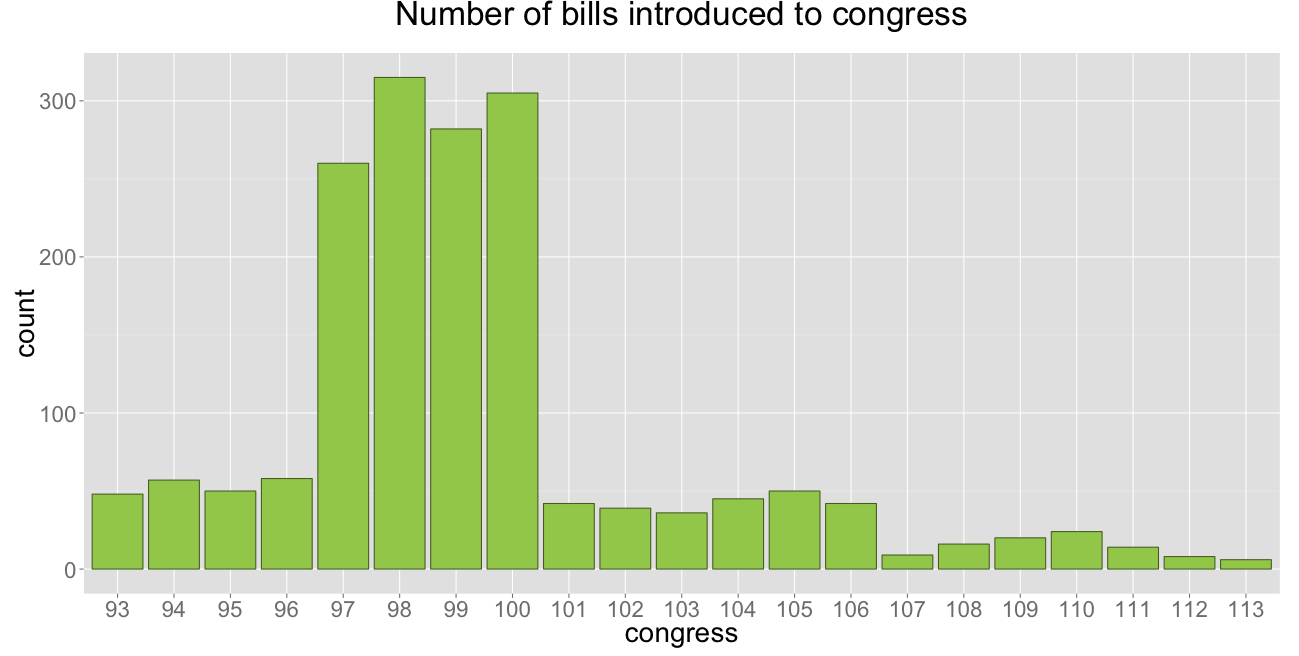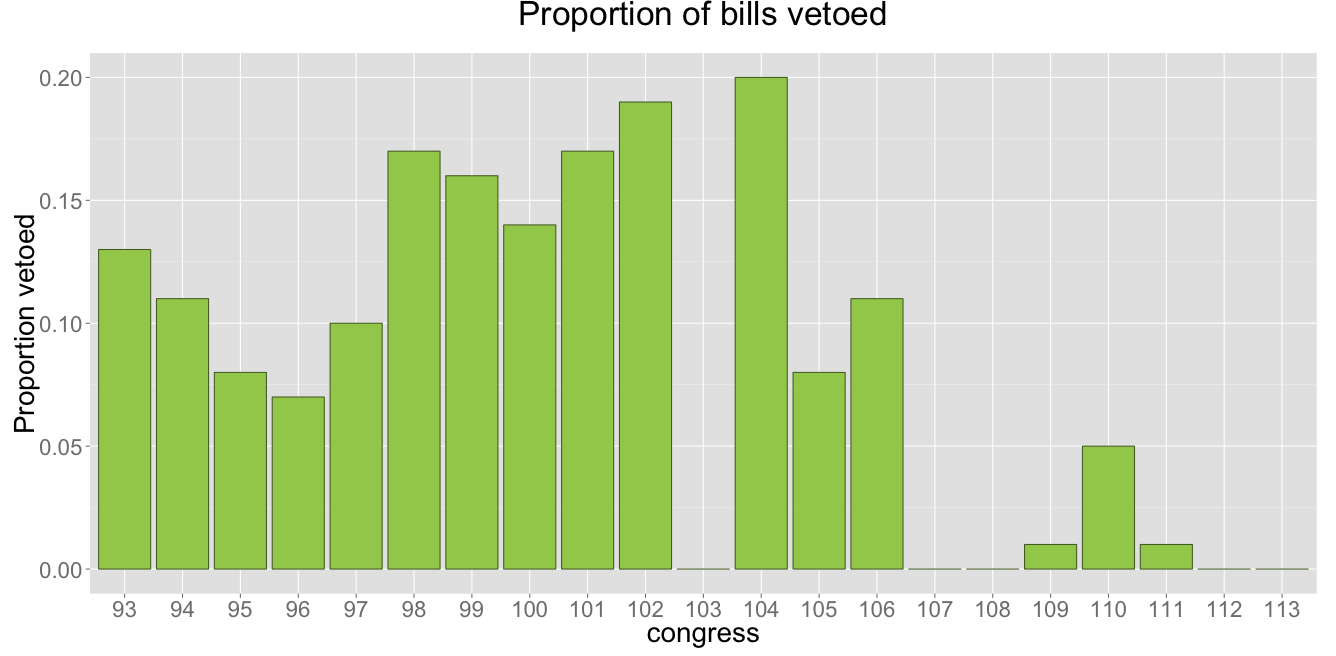Does Obama Veto a Lot?
Obama has issued two vetoes, the least number of vetoes of any President in history. Upon hearing this statistic, I wondered how few vetoes this is relative to other presidents historically.
While investigating this question, other surprising aspects of bills surfaced:
- 81% of bills introduced into congress since 1973 maintain a state of "referred", indicating they have died in committee.
- There is evidence to support the number of bills enacted per session is declining.
- The congressional sessions during the Reagan presidency experienced 10 times more resolutions than the sessions before and after Reagan.
A majority of bills stagnate in committee.
To assess the number of relative vetoes, we will compare the number of vetoes with the number of bills enacted.
There are more than just a few states a bill can be in however: Each bill record maintains a state, initiated as "introduced", and progressing into as many as 29 different states. For a complete listing of these statuses, see Appendix A: 29 Flavors of Legislative State at the bottom of this post.
In order to make these states digestable, I collapsed them into 9 states: introduced, referred, reported, enacted, enacted by veto override, passed, congressional stalemante, veto, and resolution.
</ul>81% of bills introduced since 1973 are in the “referred” state.
In the govtrack.us database there are 335,487 bills. While inspecting the govtrack.us database, I was interested to find how many bills stagnate in committee.
If only looking back to 1973 an overwhelming majority, 81%, of bills remain in the referred state. Being referred to committee and then held at that level, as opposed to being sent to subcommittee means one of two things: either the bill will be acted on quickly or it is being suppressed and will die from neglect (source: LexisNexis).

The total number of bills enacted by congress is declining.
By visual inspection, I surmise the number of bills enacted by Congress is declining over time.

The number of bills introduced is also declining.
I also surmise the number of bills introduced is also declining, however visual analysis is thwarted by the Reagan sessions towering over their neighbors.

It is impossible to ignore the 97th through 100th congressional sessions. Congressional activity, specifically new resolutions, spiked during Ronald Reagan’s presidency. Comparing the 4 sessions before, during and after the Reagan presidency revealed nearly 10 times more house resolutions from the Reagan years still exist in the introduced state as before and after the Reagan years. From those sessions, 996 house resolutions are still in the “introduced” state, whereas before and after Reagan sessions only 103 and 26 house resolutions still exist as “introduced”.
Obama has issued the least total and relative number of vetoes.
Obama has been president during the 111th, 112th and 113th Congressional sessions. Both in total and relative numbers, he has vetoed the least bills of any president since 1973.

Appendix A: 29 Flavors of Legislative State
Identity
- referred
- reported
- introduced
- enacted_veto_override
- passed_bill
Congressional Stalemate
- pass_over_senate
- pass_over_house
- pass_back_house
- pass_back_senate
- fail_originating_house
- fail_originating_senate
- conference_passed_house
- fail_second_house
- failed_second_senate
- conference_passed_senate
- prov_kill_suspensionfailed
- prov_kill_cloturefailed
Vetoed
- prov_kill_veto
- vetoed_pocket
- override_pass_over_house
- vetoed_override_fail_second_senate
- vetoed_override_fail_originating_house
- vetoed_override_fail_originating_senate
- vetoed_override_fail_second_house
Enacted
- enacted_signed
- enacted_unknown
- enacted_tendayrule
Passed Resolutions
- passed_concurrentres
- passed_simpleres
simple resolution: Designated “S. Res.,” simple resolutions are used to express nonbinding positions of the Senate or to deal with the Senate’s internal affairs, such as the creation of a special committee. They do not require action by the House of Representatives. (source)
